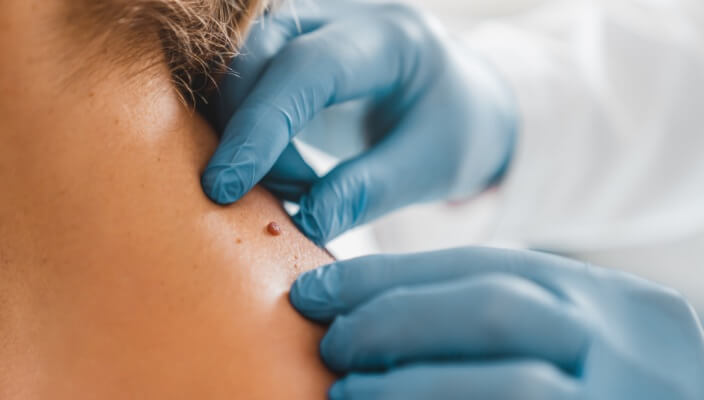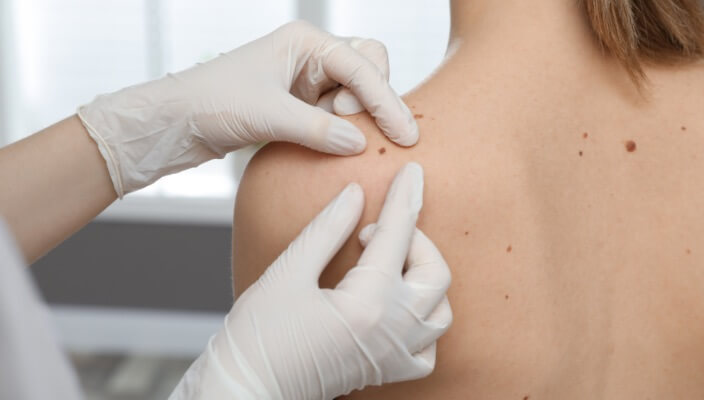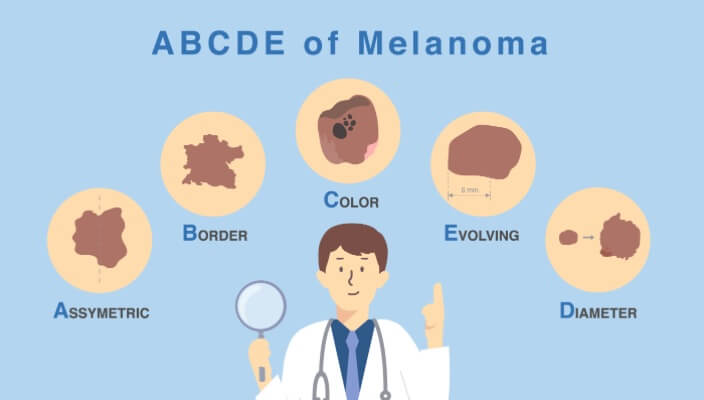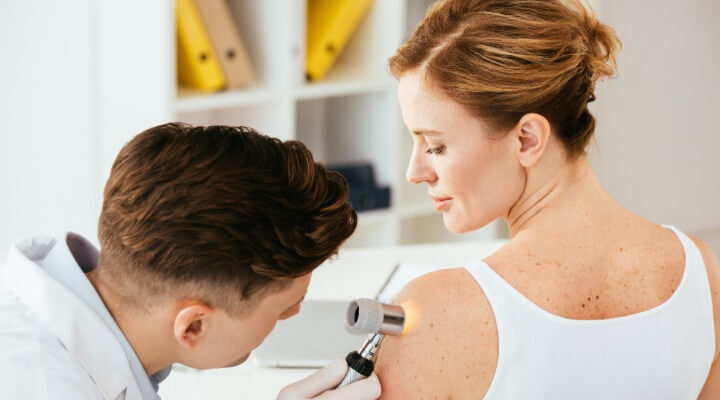The Role of Dermatologists in Skin Cancer Prevention and Treatment
Empowering Skin Cancer Prevention Through Expert Guidance and Comprehensive Care
 Skin cancer, affecting over 5 million people annually, is a prevalent and potentially life-threatening condition that demands proactive prevention and timely treatment. Dermatologists play a pivotal role in this regard, with an essential first step being an understanding of the risk factors associated with skin cancer.
Skin cancer, affecting over 5 million people annually, is a prevalent and potentially life-threatening condition that demands proactive prevention and timely treatment. Dermatologists play a pivotal role in this regard, with an essential first step being an understanding of the risk factors associated with skin cancer.Skin cancer risk factors, such as exposure to ultraviolet (UV) radiation from the sun or artificial sources like tanning beds, a history of severe sunburns, fair skin, a weakened immune system, and a family history of skin cancer, contribute significantly to its prevalence. Dermatologists assess these factors, emphasizing the importance of comprehensive sun protection and personalized prevention strategies.
Importance of Regular Skin Checks
Regular skin checks conducted by dermatologists are fundamental in identifying suspicious moles, lesions, or changes in the skin that could indicate skin cancer. According to the American Academy of Dermatology, early detection increases the five-year survival rate for melanoma—the deadliest form of skin cancer—to 99%.Patients, particularly those with a heightened risk due to personal or family history, are strongly encouraged to prioritize annual skin checks. This proactive approach empowers individuals to take control of their skin health, fostering early detection and the potential for life-saving interventions. Regular skin checks with dermatologists serve as a cornerstone in the broader strategy of skin cancer prevention.
According to the American Academy of Dermatology, the five-year survival rate for melanoma—the most severe form of skin cancer—soars to an impressive 99% when detected early.
Importance of Regular Skin Checks
Thorough Examinations
Leveraging Dermoscopy for Precision
Watch: Tips for Preventing Skin Cancer
Comprehensive Treatment Approaches
Should skin cancer be diagnosed, dermatologists offer a range of treatment options tailored to the type and stage of cancer. Common treatments include:
- Surgical Procedures: Dermatologists may perform excisions or Mohs surgery to remove cancerous tissue while preserving as much healthy skin as possible.
- Topical Treatments: For certain non-melanoma skin cancers, topical creams or gels may be prescribed to target and eliminate cancerous cells.
- Radiation Therapy: In some cases, dermatologists may recommend radiation therapy to target and destroy cancer cells.
- Immunotherapy: This innovative approach stimulates the body's immune system to recognize and eliminate cancer cells.
- Targeted Therapy: Precision medicines are designed to target specific molecules involved in cancer growth, offering a more targeted and effective treatment approach.
Partnering with Your Dermatologist
With the global incidence of skin cancer rising steadily, regular check-ups with a dermatologist form a critical component of overall skin health. By understanding the risk factors, prioritizing routine skin checks, and exploring comprehensive treatment options when needed, individuals can actively engage in the prevention and management of skin cancer. Schedule your annual skin check today to proactively protect your skin health. Early detection saves lives—partner with your dermatologist on the journey to skin cancer prevention and effective treatment.
Featured Products
Check your local office for current stock!
Check your local office for current stock!
Featured Blogs

- Skin Cancer
- General Dermatology
- Skin Exams
Your skin is your largest organ and its first line of defense. Learn more about why a skin exam should be a part of your wellness routine.
Read More
- Skin Cancer
- Sun Safety
The sun's ultraviolet (UV) radiation poses a significant risk. Discover ways to protect you and your loved ones from the sun and keep your skin healthy all year long.
Read More
- Skin Cancer
- General Dermatology
- Skin Exams
Learn the ABCDEs of Melanoma, the deadliest form of skin cancer.
Read More


